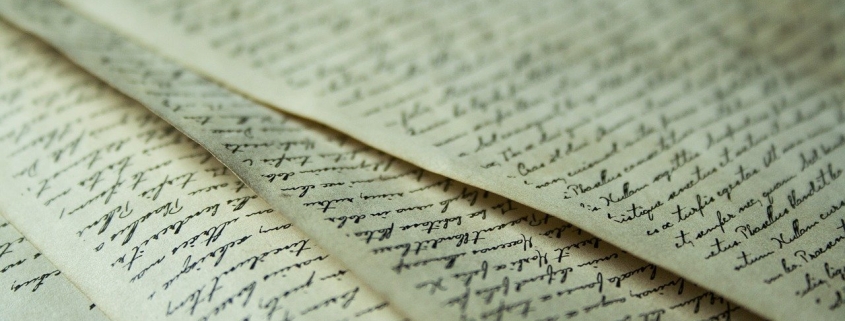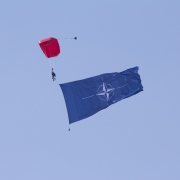What was the purpose of the Yalta Conference?
Topic of Study [For H2 and H1 History Students]:
Paper 1: Understanding the Cold War (1945-1991)
Section A: Source-based Case Study
Theme I Chapter 1: Emergence of Bipolarity after the Second World War [Manifestations of emerging tensions: Yalta and Potsdam conferences]
Historical context
The Yalta Conference (codenamed Argonaut) was a meeting of the United States (US), United Kingdom (UK) and Soviet Union from 4 to 11 February 1945 to deliberate on the post-war developments of Europe. Before the Yalta, the Tehran Conference (codenamed Eureka) was held from 28 November to 1 December 1943 that involved the discussion of a Western Front to repel the forces of Nazi Germany.
By February 1945, the Allied forces were certain that victory was within their grasp after liberating France and Belgium from Nazi occupation. The Yalta was conducted at the Black Sea resort in Crimea, hosting by the American President Franklin D. Roosevelt.
The Division of Germany
During the meeting, the participants agreed to divide Germany into four post-war occupation zones that were managed by the US, UK and Soviet Union. Additionally, there was consensus in ensuring the demilitarisation of Germany and the payment of post-war reparations to the affected parties like Soviet Union.
Under the agreed plan, the forces of the Three Powers will each occupy a separate zone of Germany. Co-ordinated administration and control has been provided for under the plan through a central Control Commission consisting of the Supreme Commanders of the Three Powers with headquarters in Berlin.
… It is our inflexible purpose to destroy German militarism and Nazism and to ensure that Germany will never again be able to disturb the peace of the world.
An excerpt from “Roosevelt and the Russians: The Yalta Conference“, by Edward R. Stettinius Jr.
From the above excerpt, it referred to the creation of an Allied Control Council that form the legal authority for post-war Germany. The Council was helmed by four members: General Dwight Eisenhower (United States), Marshall Georgy Zhukov (Soviet Union), Field Marshal Bernard Montgomery (United Kingdom) and General Jean de Lattre de Tassigny (France).
The Declaration of Liberated Europe
The British Prime Minister Winston Churchill proposed the conduct of free and fair elections in Eastern and Central Europe. Along the same vein, Soviet Premier Joseph Stalin agreed to oversee free elections in Poland and other Eastern European territories, but insisted in retaining the Polish territories annexed in 1939. Stalin’s stance was built on the basis that Germany had invaded Russia through Poland twice.
II. DECLARATION OF LIBERATED EUROPE
The following declaration has been approved:
… The establishment of order in Europe and the rebuilding of national economic life must be achieved by processes which will enable the liberated peoples to destroy the last vestiges of nazism and fascism and to create democratic institutions of their own choice. This is a principle of the Atlantic Charter – the right of all people to choose the form of government under which they will live – the restoration of sovereign rights and self-government to those peoples who have been forcibly deprived to them by the aggressor nations.
…
VII. POLAND
The following declaration on Poland was agreed by the conference:
A new situation has been created in Poland as a result of her complete liberation by the Red Army. This calls for the establishment of a Polish Provisional Government which can be more broadly based than was possible before the recent liberation of the western part of Poland. The Provisional Government which is now functioning in Poland should therefore be reorganized on a broader democratic basis with the inclusion of democratic leaders from Poland itself and from Poles abroad. This new Government should then be called the Polish Provisional Government of National Unity.
An excerpt from the Yalta Agreement, 11 February 1945.
Conceptualisation of the United Nations
During the Yalta, the ‘Big Three’ discussed the formal establishment of the United Nations and participation by the Soviet Union. The Agreement outlined the voting procedures within the Security Council that were eventually enshrined in the United Nations Charter.
A looming threat
However, the possibility of post-war peace among the ‘Big Three’ had dissolved when the Soviets supported the formation of the pro-Communist Lublin Committee (also known as the Polish Committee of National Liberation) that opposed the Western-backed Polish government-in-exile. During Conference, Roosevelt wrote a letter to Stalin, hoping that the Soviet leader would cooperate amicably.
In so far as the Polish Government is concerned, I am greatly disturbed that the three great powers do not have a meeting of minds about the political setup in Poland. It seems to me that it puts all of us in a bad light throughout the world to have you recognizing one government while we and the British are recognizing another in London. I am sure this state of affairs should not continue and that if it does it can only lead our people to think there is a breach between us, which is not the case. I am determined that there shall be no breach between ourselves and the Soviet Union. Surely there is a way to reconcile our differences.
… I have had to make it clear to you that we cannot recognize the Lublin Government as now composed, and the world would regard it as a lamentable outcome of our work here if we parted with an open and obvious divergence between us on this issue.
An excerpt from US President Roosevelt’s letter to Stalin on “Acceptable compromise regarding the composition of the postwar Polish Government”, 6 February 1945.
What can we learn from this article?
Consider the following question:
– How far do you agree that the breakdown of the Grand Alliance was the main reason for the outbreak of the Cold War?
Join our JC History Tuition and learn more about the Cold War. The H2 and H1 History Tuition feature online discussion and writing practices to enhance your knowledge application skills. Get useful study notes and clarify your doubts on the subject with the tutor. You can also follow our Telegram Channel to get useful updates.
We have other JC tuition classes, such as JC Math Tuition and JC Chemistry Tuition. For Secondary Tuition, we provide Secondary English Tuition, Secondary Math tuition, Secondary Chemistry Tuition, Social Studies Tuition, Geography, History Tuition and Secondary Economics Tuition. For Primary Tuition, we have Primary English, Math and Science Tuition. Call 9658 5789 to find out more.











